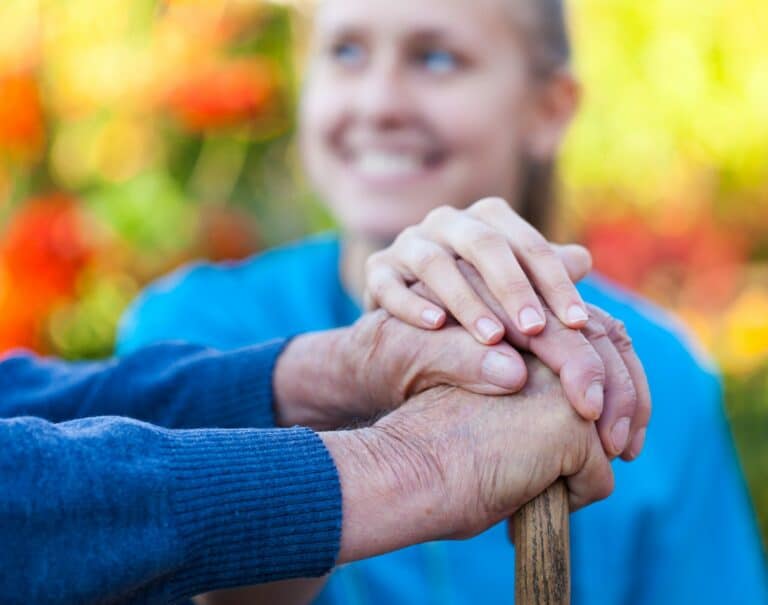Caring for a loved one in their dying years is never easy. Whether you are companion care at home aide or simply want to be there for them, you’re undoubtedly wondering what to expect. Acquainting yourself with end-of-life symptoms in older folks can help you better comprehend what your loved one is going through and facilitate a seamless transition for all.
Companion Care at Home Newton MA – Companion Care at Home: Symptoms that Come at End-Of-LifeKeep in mind that every senior is different and may have different symptoms they experience at the end of their life. Companion care at home services won’t know what all of them are but part of their job is to keep an eye on the senior. Understanding the symptoms that come during the final stages of life will help them take better care of the senior.
Several Weeks Before End-Of-Life
A sense of resignation is one of the initial indicators. This may manifest as a depressed mood, a lack of motivation, or retreat. The individual may spend an increased amount of time reminiscing about their youth and early life experiences.
- Appetite loss
- General weakness
- Increased weariness becomes apparent
Some seniors may know that it’s their time and may even be ready. This is the time for companion care at home aides to sit with them and talk to them. This is the time for the family to come and visit with the seniors.
Days Remaining Before The End of life
Your loved one is almost certainly going to sleep more than they are awake. They will move and speak less and may not respond to conversation or disturbances. Their hearing is almost undoubtedly unaffected, but their vision may be hindered.
Additional symptoms in the final days may include the following:
- Blood pressure, heart rate, and body temperature all decrease
- Labored respiration
- Swallowing difficulties
- Refusing to eat
- No further bowel motions or urination.
- Delusions or hallucinations
Some seniors may feel more energized than others and have sudden bursts of energy to get some stuff done. Companion care at home providers can help them with these bursts of energy.
Right Before The End
This can be one of the hardest things to deal with in life. A senior may want to see the family or have companion care at home aides with them during this time. Here are some of the symptoms that may happen during this time.
- Irregular respiratory patterns and a greater pause between breaths (Cheyne-Stokes breathing)
- Loud breathing
- Eyes that are glassy and extremities that are chilly
- On the knees, feet, and hands, the skin may be purple, gray, pallid, or blotchy
- Consciousness shifts due to a weak pulse, unexpected outbursts, and unresponsiveness
It may be one of the hardest times to deal with, but it can be important to say your goodbyes. Keep in mind that even if they are unconscious they may still hear you talk to them.
Right At Death
If you are there for this part, it can be one of the most uncomfortable parts to deal with. You may be overwhelmed with grief and sad to see your loved one go. Their breathing will stop, they will have no pulse, or blood pressure. You may not know it’s over because you will see body movements for a few minutes after.
If you or an aging loved one are considering Companion Care at Home Services in Newton MA, or anywhere in Eastern Massachusetts, please call the caring staff at CARE Resolutions – (508) 906-5572
- Tips for Seniors Who Want to Try Social Media - April 7, 2025
- How Can Seniors Transition Home from the Hospital Smoothly? - March 19, 2025
- Can Seniors Get Fit and Stay Active with Chronic Health Issues? - March 6, 2025



